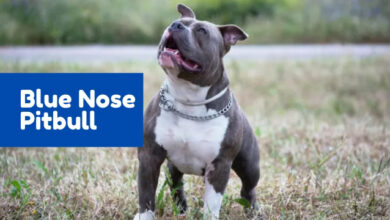
When people hear the term “Doberman Pinscher,” two ideas often come to mind: first, a sleek, powerful dog known for its intelligence and loyalty; second, a breed that requires special care and training to thrive as a family companion. The Doberman Pinscher is a noble and energetic breed, famous for its keen temperament and protective instincts. However, first-time Doberman owners need to understand the breed’s unique needs, including its temperament, care requirements, and training challenges. Dobermans are highly intelligent and responsive, but without proper socialization and consistent Doberman training, they can become pushy or overly protective.
This guide will share five key tips on Doberman care, covering everything from managing their energetic temperament to establishing effective training routines and maintaining their sleek coat. Whether you’re preparing to welcome your first Doberman or looking to deepen your understanding of this remarkable breed, you’ll find expert advice and actionable insights to help you build a strong, loving bond with your Doberman Pinscher. Get ready to learn how to provide the best environment, training, and care for your new best friend!
Tip 1: Understand Doberman Pinscher Temperament and Personality
Doberman Temperament: What Are They Like?
Doberman Pinschers are known for their strong and unique personalities. Here are the main traits you will notice:
- Intelligent: Dobermans are one of the smartest dog breeds. They learn new commands very quickly and can solve problems on their own. In a famous study, Dobermans ranked 5th for intelligence among all dog breeds. They can learn new things in just a few tries and remember them well.
- Loyal: Dobermans form very strong bonds with their owners and families. They love being with their people and are happiest when they feel like part of the group. This loyalty also makes them protective of their loved ones.
- Protective: Dobermans were first bred to be guard dogs. They naturally watch over their home and family. They are alert and will let you know if something seems wrong. They may be careful around strangers at first, but they are loving with their family.
- Energetic: These dogs have a lot of energy. They need plenty of exercise every day, like walks, playtime, or running in a safe area. Without enough activity, Dobermans can get bored and might start to misbehave.
Doberman Personality: How Do They Behave?
- Affectionate: Dobermans are very loving with their families. They enjoy cuddles, petting, and spending time together. Many Dobermans even like to follow their owners around the house.
- Sensitive: Even though they look tough, Dobermans are sensitive to their owner’s feelings. They can get upset if they are scolded harshly or left alone for too long. They do best with gentle, positive training and lots of attention.
- Playful: Dobermans love to play, especially with children they know. They can be gentle and patient, but their excitement might be too much for very small kids. Always watch playtime to keep everyone safe.
- Alert: Dobermans are always paying attention to what’s going on around them. They are quiet most of the time but will bark if they sense something unusual.
The Importance of Early Socialization and Training
- Socialization: Dobermans need to meet lots of people, other dogs, and new places when they are young. This helps them grow up to be friendly and confident. Without early socialization, they might become too shy or too protective.
- Training: Because Dobermans are smart, they learn quickly. But they can also be stubborn if not trained well. Start teaching basic commands early and use rewards like treats or praise. Positive training helps them become well-behaved adults.
- Routine: Dobermans do best with a regular routine. This includes feeding, exercise, and training at the same times each day.
Quick Facts About Doberman Behavior
- They are loyal and want to be close to their family.
- They are protective and make excellent watchdogs.
- They are playful and active, needing daily exercise.
- They are sensitive and respond best to kind, patient training.
- They can become anxious if left alone for too long.
Doberman Pinschers are smart, loyal, and loving dogs. They make wonderful family members for people who can give them the exercise, training, and attention they need. Early socialization and positive training are the keys to raising a happy and well-behaved Doberman.
Tip 2: Provide Adequate Exercise and Mental Stimulation
Doberman Pinschers are strong, smart, and full of energy. They need both physical exercise and mental challenges every day. If you do not give your Doberman enough activity, they can become bored or even develop bad habits.
Why Dobermans Need Lots of Exercise
- Dobermans are a high-energy breed. They were originally bred for work, which means they are used to being active and busy.
- If a Doberman does not get enough exercise, they may start chewing things, barking too much, or acting out in other ways.
- Regular activity helps keep Dobermans healthy, calm, and happy.
How Much Exercise Does a Doberman Need?
- An adult Doberman needs about 60 to 90 minutes of exercise each day.
- Puppies and young Dobermans (under 18 months) need at least 30 to 45 minutes, but not all at once.
- You can break up exercise into several short sessions.
Good Exercise Ideas for Dobermans
- Daily Walks: Take your Doberman for a walk at least once or twice a day. Make some walks longer or try new routes to keep things interesting.
- Playtime: Play fetch, tug-of-war, or chase games in your yard or at a park.
- Agility Training: Set up simple obstacle courses with jumps or tunnels. This is fun and also works their mind.
- Hiking: Dobermans are great hiking partners. They love exploring new trails and being outdoors.
- Always bring water and take breaks.
- Avoid hiking in very hot or cold weather, as Dobermans have short coats and can get too hot or cold quickly.
- Keep your Doberman on a leash for safety, especially in new places or around wildlife.
- Swimming: Some Dobermans enjoy swimming. It’s a good way to exercise without putting stress on their joints.
Mental Stimulation for Dobermans
Physical exercise is not enough for Dobermans. They also need to use their brains every day.
- Training Sessions: Teach new commands or tricks. Short, regular training keeps their minds sharp.
- Puzzle Toys: Give your dog toys that make them think, like treat puzzles or games where they have to find hidden food.
- Scent Games: Hide treats around the house or yard and let your Doberman find them with their nose.
- Socialization: Let your Doberman meet new people and other dogs. New experiences keep their minds active and help them learn good behavior.
- Interactive Play: Play hide-and-seek or name their toys and ask them to find the right one.
What Happens If a Doberman Gets Bored?
- They may chew furniture, dig holes, or bark too much.
- Boredom can make them anxious or even aggressive.
- Giving them enough exercise and mental games helps prevent these problems.
Tips for Hiking with Your Doberman
- Start with short hikes and build up to longer ones.
- Bring water, snacks, and a first-aid kit for your dog.
- Watch for signs your dog is tired, too hot, or too cold.
- Use a leash and keep your dog close, especially in new places or if there is wildlife around.
- Make sure your Doberman is healthy enough for hiking by checking with your vet first.
Dobermans need both exercise and mental stimulation every day. Walks, play, hikes, and training keep their bodies and minds busy. A tired and happy Doberman is a well-behaved Doberman. Give them plenty of things to do, and you will have a loyal, loving, and fun companion.
Doberman Pinscher: Training and Socialization Made Simple
The Doberman Pinscher is a smart, loyal, and strong dog. They are known for being protective and loving to their families. With the right training and socialization, Dobermans can be gentle and friendly pets.
Why Training and Socialization Matter
Dobermans are naturally protective. If they do not get proper training and socialization, they can become shy or even aggressive around strangers. Early training helps them learn good manners and feel comfortable in new places.
Tip 3: Focus on Proper Training and Socialization
1. Start Early
- Begin training and socializing your Doberman as soon as you bring them home.
- Puppies between 3 and 14 weeks old learn new things quickly. This is the best time to introduce them to different people, places, and sounds.
2. Use Positive Reinforcement
- Reward your Doberman with treats, praise, or play when they do something good.
- Ignore or gently redirect unwanted behavior instead of punishing them.
- Positive reinforcement builds trust and helps your dog learn faster.
3. Teach Basic Commands
- Start with simple commands like sit, stay, and come.
- Keep training sessions short and fun.
- Repeat commands and reward your dog each time they listen.
4. Socialize Regularly
- Let your Doberman meet new people, friendly dogs, and visit different places.
- Keep these meetings calm and positive. Praise your dog for good behavior.
- Regular socialization helps prevent fear and aggression as your dog grows up.
5. Avoid Over-Guard Training
- Do not train your Doberman to be overly protective or aggressive.
- Over-guard training can make them too suspicious of strangers and even family members.
- Focus on teaching your dog to be calm and polite in all situations.
Doberman Training Tips
- Be patient and consistent. Training takes time.
- Use the same words and signals for commands.
- Never yell at or hit your Doberman. This can make them scared or aggressive.
- Practice in different places so your dog learns to listen everywhere.
- If you need help, join a puppy class or ask a professional dog trainer.
Doberman Socialization
- Expose your Doberman to new experiences in a gentle way.
- Let them hear different sounds, walk on different surfaces, and meet people of all ages.
- Give treats and praise for calm behavior in new situations.
Are Dobermans Aggressive?
Dobermans are not naturally aggressive. They are protective and may act wary around strangers if not trained well. With early socialization and positive training, Dobermans are friendly and loving family dogs.
Signs of possible aggression in Dobermans:
- Growling, barking, or showing teeth
- Stiff body or raised fur
- Lunging or snapping
If you notice these signs, get help from a professional dog trainer.
How to Train a Doberman?
- Start early with simple commands.
- Use treats and praise to reward good behavior.
- Socialize your Doberman with people, pets, and places.
- Be patient and repeat training often.
- Avoid harsh punishment; focus on building trust.
Key Points to Remember
- Train and socialize your Doberman early.
- Use positive reinforcement like treats and praise.
- Avoid teaching your Doberman to be too protective.
- Be patient and consistent.
- Socialize your dog often to prevent fear or aggression.
With love, patience, and the right training, your Doberman Pinscher will be a happy, friendly, and loyal companion.
Tip 4: Maintain Grooming and Health Care for Your Doberman Pinscher
Taking good care of your Doberman means keeping up with grooming and watching their health closely. This helps your dog look great and feel their best.
Doberman Coat Care
- Dobermans have short, smooth coats that are easy to care for.
- Brush your Doberman at least once a week. This removes loose hair and dirt, and spreads natural oils for a shiny coat.
- Use a rubber grooming mitt or a soft-bristle brush. Brush in the direction the hair grows.
- Dobermans shed all year, but shedding can increase during certain seasons.
- Give your Doberman a bath every 4–8 weeks, or when they get dirty.
- Always use a gentle, dog-safe shampoo. Rinse well to remove all soap.
- Dry your dog completely after a bath to avoid skin problems.
Extra Coat Care Tips
- Check your Doberman’s elbows and skin folds. These areas can get dry or trap dirt, which may cause irritation.
- You don’t need to cut their hair, but you can trim around the ears and paws if needed.
- If you are unsure how to trim, ask a groomer or your vet for help.
Ear and Eye Care
- Dobermans’ ears can trap moisture and dirt, which may cause infections.
- Clean your dog’s ears regularly with a vet-approved ear cleaner and soft cotton balls.
- Never use cotton swabs deep inside the ear. This can push dirt in further or hurt your dog.
- Check ears for redness, bad smell, or too much scratching. These are signs of infection. If you see them, call your vet.
- After cleaning, give your Doberman a treat so they see ear care as a good thing.
- For eye care, look for redness, discharge, or swelling. Wipe gently with a soft, damp cloth if you see any buildup.
- Foods like carrots, blueberries, and fish can help keep your Doberman’s eyes healthy.
Other Grooming Needs
- Trim your Doberman’s nails every 3–4 weeks to keep them from getting too long and causing pain.
- Brush your dog’s teeth several times a week with dog toothpaste to prevent dental problems.
- Check paws for cuts or debris, and keep hair between the paw pads trimmed for comfort and grip.
Common Doberman Health Issues
Dobermans are strong dogs, but they can have certain health problems. Watching for these can help keep your dog healthy.
- Dilated Cardiomyopathy (DCM): This is a heart problem where the heart gets too big and weak. Signs include coughing, shortness of breath, fainting, and tiredness.
- Von Willebrand Disease: This is a blood problem that makes it hard for blood to clot. Signs are nosebleeds, bruising, and bleeding that won’t stop.
- Chronic Active Hepatitis: This is a liver disease, often seen in female Dobermans. Signs include vomiting, weight loss, and drinking or peeing more than usual.
- Other Issues: Dobermans can also have problems with their eyes, skin, and joints.
Practical Health Monitoring Tips
- Take your Doberman to the vet for regular check-ups, at least once a year.
- Watch for changes in how your dog acts, eats, or looks. If something seems wrong, call your vet.
- Keep a record of your dog’s weight, appetite, and energy. Changes can be early signs of health problems.
- Ask your vet about special tests for heart and blood problems, especially as your dog gets older.
Tip 5: Create a Safe and Loving Home Environment for Your Doberman Pinscher
A Doberman Pinscher is more than just a pet—they are a loyal friend and a true family dog. To help your Doberman feel happy and secure, it’s important to create a safe and loving home. Here’s how you can do that using simple steps.
Why Consistent Routines Matter
- Dobermans feel safe when they know what to expect each day.
- Try to feed, walk, and play with your Doberman at the same times daily.
- Set clear rules for your dog and stick to them. This helps your Doberman understand what is allowed and what is not.
How to Make Safe Spaces at Home
- Give your Doberman a special spot, like a crate or a soft bed, where they can relax and feel safe.
- Place the crate in a quiet area, away from loud noises and busy spots in your home.
- Use treats and kind words to help your Doberman see this space as a good place.
- Make sure your home is safe by keeping harmful things out of reach, such as cleaning products and small objects they could swallow.
- Always provide freshwater and a comfortable place to rest.
The Importance of Bonding
Dobermans are known for their loyalty and love for their families. They want to be close to you and be part of your life.
- Spend time with your Doberman every day. This can be playing, walking, or just sitting together.
- Use gentle touch, like petting or brushing, to build trust and comfort5.
- Training together is a great way to bond. Dobermans are smart and enjoy learning new things with you.
- Play games that your Doberman enjoys. This keeps them happy and strengthens your connection.
Doberman Loyalty and Companionship
- Dobermans are sometimes called “velcro dogs” because they love to stay close to their owners.
- They are very loyal and protective, always watching out for their family.
- Dobermans do best when they live inside the house with their people—not outside alone.
- They need your attention and can feel sad or anxious if left alone too much.
Doberman Home Care Tips
- Brush your Doberman’s coat once a week to keep it healthy.
- Give them plenty of exercise every day. Dobermans have a lot of energy and need to run and play.
- Keep their minds busy with puzzles, toys, and training.
- Feed them good quality dog food and always have clean water available.
Doberman as a Family Dog
- Dobermans are usually very good with children, especially when raised together9.
- They are gentle, patient, and protective with kids, but always supervise playtime, especially with young children.
- With the right training and socialization, Dobermans can also get along well with other pets, including other dogs.
- Early socialization is important. Introduce your Doberman to new people, pets, and places while they are young to help them grow into a friendly and confident adult.
Creating a safe and loving home for your Doberman Pinscher is all about consistency, comfort, and companionship. Give them routines, safe spaces, and lots of time with you. In return, you’ll have a loyal, loving, and happy family dog who will protect and adore you for life.
Doberman Pinscher: A Friendly Guide
The Doberman Pinscher is a strong and smart dog. People often choose Dobermans as family pets or guard dogs. They are loyal, loving, and protective. This guide will help you understand what makes Dobermans special and how to take care of them.
What Does a Doberman Look Like?
- Size: Dobermans are medium to large dogs.
- Body: They have a slim, muscular body.
- Coat: Their fur is short and smooth. It is easy to brush.
- Color: Most Dobermans are black and brown, but some can be blue, red, or fawn.
- Ears and Tail: Some Dobermans have cropped ears and short tails, but this depends on the country and owner’s choice.
Doberman Personality
- Loyal: Dobermans love their families and want to protect them.
- Smart: They learn new things quickly.
- Energetic: They need lots of play and exercise every day.
- Alert: Dobermans are good at noticing new people or strange sounds.
- Gentle: With the right training, they are gentle with children and other pets.
How to Care for a Doberman
1. Food and Water
- Give your Doberman healthy dog food every day.
- Make sure they have clean water all the time.
- Do not give them chocolate, onions, or grapes. These foods are bad for dogs.
2. Exercise
- Dobermans need to run and play every day.
- Take them for walks, play fetch, or let them run in a safe yard.
- Exercise helps them stay happy and healthy.
3. Training and Socializing
- Start training your Doberman when they are a puppy.
- Teach them basic commands like “sit,” “stay,” and “come.”
- Let them meet other dogs and people so they learn to be friendly.
- Use kind words and treats to reward good behavior.
4. Health Care
- Take your Doberman to the vet for check-ups.
- Make sure they get their shots and medicines on time.
- Brush their teeth and check their ears for dirt.
- Watch for signs of sickness, like not eating or being tired.
5. Love and Attention
- Dobermans need to feel loved.
- Spend time playing and cuddling with your dog.
- Never leave them alone for too long.
Conclusion
5 Key Tips for Doberman Owners
- Feed healthy food and give clean water.
- Give them lots of exercise.
- Train and socialize them early.
- Visit the vet for regular check-ups.
- Show them love and attention every day.
Owning a Doberman is a big responsibility, but it is also very rewarding. Dobermans can be your best friend and a great family member if you care for them well. They will protect you and love you back.
If you are thinking about getting a Doberman, talk to a vet first. Start training early and enjoy every moment with your loyal friend!
FAQ
How much exercise does a Doberman need?
A Doberman needs at least 1 to 2 hours of exercise every day. Long walks, runs, and playtime keep them healthy and calm. Without enough activity, they may get bored and act out.
Are Dobermans good with kids?
Yes, Dobermans can be good with kids if trained early. They are loyal, protective, and gentle with family. Always supervise playtime, especially with small children, to keep everyone safe.
What health problems affect Dobermans?
Dobermans may face heart issues like dilated cardiomyopathy, hip problems, and a bleeding disorder called Von Willebrand’s disease. Regular vet checkups help catch health problems early and keep them under control.
How often should I groom my Doberman?
Groom your Doberman once a week. Use a soft brush to remove loose hair. Bathing is needed only once a month or when they get dirty. Check ears, nails, and teeth regularly too.
Are Dobermans easy to train?
Yes, Dobermans are smart and learn fast. They respond well to positive training. Start training early and stay consistent. This helps them grow into well-behaved and confident dogs.



